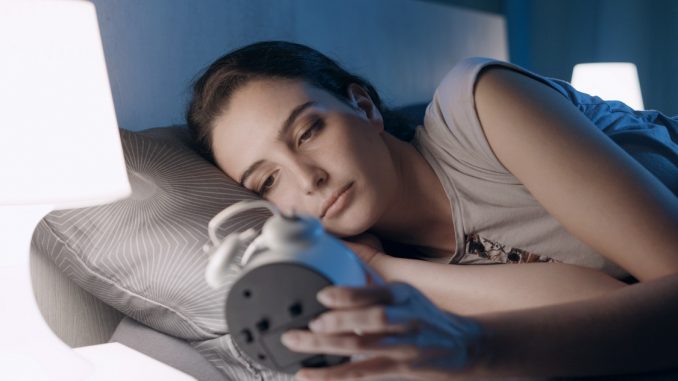
Problems falling asleep: Tips for falling asleep and sleep hygiene
Difficulty falling asleep can often disrupt the entire day or week as fatigue and poor sleep linger on. Tips for falling asleep can save the day, as you can often get problems falling asleep under control with a few behavioral changes. Even small things in everyday life have an impact on our sleep and can therefore cause or solve problems falling asleep. Adjusting diet, the sleeping environment and general everyday habits can be the decisive points in making it easier to fall asleep again and solving problems falling asleep.
These behaviors, which can ideally lead to better sleep, are summarized under the term sleep hygiene. So if you consciously pay attention to your sleep hygiene, you can regularly enjoy deep and undisturbed sleep. Small changes in behavior often have a big impact on sleep hygiene and ensure that you can fall asleep better and stay asleep. In the following sections you will find our tips for falling asleep and developing good sleep hygiene so that problems falling asleep are a thing of the past.
Sleep better with sleep hygiene:
Get a good night's sleep during the day. Sleep better. This is what many sleepless souls wish for in bed at night. The key word here is sleep hygiene, because in order to sleep better it is important to pay attention to your habits during the day. Because even if the topic of “sleeping better” has been dealt with in the morning, you can already plan for the next sleep phase and pay attention to your sleep hygiene. An important tip: Don't stay in bed longer than necessary in the morning. Instead, get up as soon as the alarm goes off or you wake up on your own. Save your tiredness for the evening so you can fall asleep more easily.
It's best to start your day energetically. Sport is not only healthy, it also wakes you up and gets your circulation going. We therefore recommend postponing your training to the first half of the day. The goal of sleep hygiene is to ensure that you are awake at appropriate times and get tired at appropriate times. Exercising physically in the evening is not good for sleep hygiene - perhaps contrary to intuitive assumptions, exercise makes you tired. However, healthy sleep hygiene does not necessarily mean exhausting yourself throughout the day and finally falling into bed completely exhausted in the evening. A nap may be necessary, but make sure it doesn't last longer than 30 minutes - more like a power nap.
Habits such as smoking, for example, can significantly increase difficulty falling asleep. So if you are a smoker and have trouble falling asleep, it is worth considering reducing or stopping your nicotine consumption. The same applies to alcohol consumption. People often report that drinking alcohol makes them tired and therefore helps them fall asleep, but we still recommend not consuming alcoholic beverages three hours before going to bed. Alcohol may initially make you feel tired, but the sleep that follows is often restless and neither healthy nor restful.
Meals also play their part in sleep hygiene. You can also sleep better if you stop eating heavy food three hours before bedtime and even avoid caffeine four to eight hours before your target bedtime. Filter coffee in particular has a very long effect on the body and so the energy booster for the day can prevent you from sleeping better in the evening.
Sleep hygiene:
How to plan your day for restful sleep Sleep hygiene depends on rituals and daily habits. You may be familiar with the saying “Humans are creatures of habit,” and that definitely applies to sleep hygiene. A regular sleep rhythm is essential for good sleep hygiene and therefore healthy and restful sleep. This includes not only fixed bedtimes and wake-up times, but also the habits in between. Separate your everyday life from bedtime with rituals; it is important to calm down in any case. So with a good book, calming music or listening to your favorite podcast, you can establish a fixed ritual before falling asleep that will become an important part of sleep hygiene and prepare you for the rest phase that follows.
Sleep better:
The quick helper for problems falling asleep You want to sleep better and want a healthy sleep rhythm. In the evening you often ask yourself what you can do to sleep better. Start with your sleeping environment, oxygen and fresh air are particularly important in the bedroom. So ventilate again. This not only ensures a good supply of oxygen, but also cools down your bedroom a little, as it is generally easier to sleep better in cool rooms. As far as possible, block out all light from outside, especially street lamps or even the full moon or the neighbor's lighting can cause problems falling asleep if it's somehow blinding and just doesn't want to get really dark in the bedroom. Close the blinds and also invest in blackout curtains if necessary.
